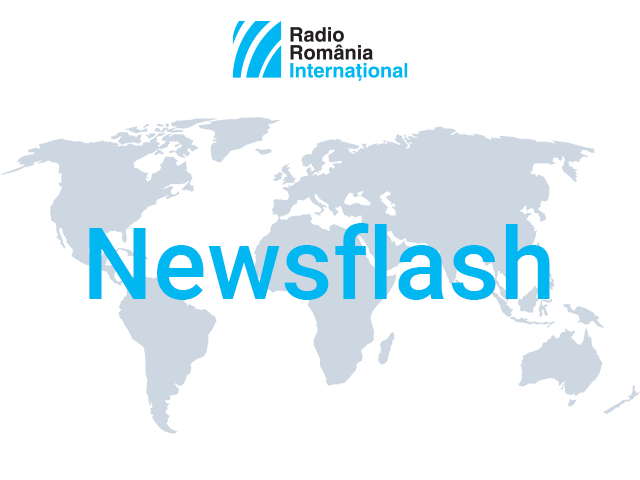April 30, 2022 UPDATE
A roundup of domestic and international news

Newsroom, 30.04.2022, 20:00
WAR IN
UKRAINE -
Peace talks with Russia risk failing, Ukraine has warned, after Russian troops
continued to bomb positions on the Donbas frontline. Ukraine’s president,
Volodymyr Zelensky, explained the people are furious with the discovery of war
crimes and atrocities committed by the Russian army. Over 1,000 civilians were
found dead after the withdrawal of Russian troops from the Kyiv oblast, many of
whom appear to have been summarily executed. They add to the thousands of
civilians killed in Russian shelling targeting civilian objectives, including
homes, hospitals, schools and cultural centers. In other news, the Russian
Minister of Foreign Affairs, Sergey Lavrov, said peace negotiations continue,
although with great difficulty. Russia is confronted with considerable
challenges and was forced to regroup and reorganize its exhausted and
scattered forces following its failed attempts at advancing in northeastern
Ukraine, the British Defense Ministry writes.
REFUGEES – The number of
Ukrainian refugees who entered Romania went down on Friday by 2.6% compared to
the previous day, the Border Police Inspectorate announced on Saturday.
According to an official news release, on April 29, over the course of 24
hours, some 96 thousand people entered Romania through all border crossing
points, of whom some 8 thousand were Ukrainian citizens. 4,651 Ukrainians
entered Romania through the Ukrainian border and another 1,731 through the
Moldovan border. Since the start of the war in neighboring Ukraine, a total of
818 thousand Ukrainian citizens entered Romania, most of whom were en route to
other Western countries.
FERRY CROSSING – A new ferry
crossing checkpoint will be opened on the Giurgiu-Ruse border following an
agreement signed by Romania and Bulgaria. According to the document, the ferry
checkpoint will remain open for passengers and vehicles with a maximum
authorized mass of 40 tons, and is expected to become operational starting this
autumn. The agreement was signed in Bucharest on Friday, during the visit of
Buglarian Prime Minister Kiril Petkov. The Bulgarian official met with his
counterpart, Nicolae Ciucă, as well as with
president Klaus Iohannis. Attending Romanian-Bulgarian talks was also EU
Commissioner for Transport, Adina Vălean, who said Brussels is ready to support
joint Romanian-Bulgarian projects. The EU official highlighted the importance
of the Danube River for river traffic in Europe, saying its potential can be
further tapped into. Apart from joint transport projects, the two delegations
also tackled the Cooperation and Verification Mechanism and the two countries’
Schengen Accession.
CYBER ATTACKS – A wave of
cyber-attacks hit Romania on Friday and Saturday. The websites of the
government, the National Cyber Security Directorate, the Defense Ministry, the
Border Police, the National Rail Company and certain commercial banks were taken
down. The attack was claimed by the pro-Russian hacker network Killnet, in
response to Romania’s support actions for Ukraine. Killnet hackers this month
also attacked institutions in Estonia, Poland, the Czech Republic, the United
States, as well as NATO websites. Experts say this was a DDoS attack, which is
a malicious attempt to flood a network or an online service with HTTP requests,
thus rendering them unavailable to their users.
ENERGY – Average
electricity prices for household users at EU level went up significantly in the
second half of 2021, compared to the same period of 2020. Romania was one of
the countries with the highest price hikes in the national currency, the
Eurostat reports. According to the European Statistics Office, electricity
prices went up across the European bloc, with the exception of Slovakia and
Hungary, where prices were regulated. The highest increase, of nearly 50%, was
reported in Estonia and Sweden. Other states that reported major increases in
electricity prices were Cyprus and Latvia, between 30% and 40%. Romania,
alongside Ireland, Lithuania, Bulgaria and Belgium, increased electricity
prices by as much as 20%. The lowest electricity prices were signaled in
Hungary, Bulgaria and Croatia, while the highest were in Denmark, Germany and
Belgium. Last year, household users in the EU paid more for natural gas as
well, Bulgaria, Greece and Estonia reporting the biggest increases, while
natural gas prices went down only in Slovakia, the Czech Republic and Portugal.
ARMY – Military
ceremonies are being held across the country, jointly with concerts and
competitions marking Land Forces Day. In Bucharest, the main event was held at
the headquarters of the Land Forces, where state officials, active and reserve
military, foreign diplomats and troops from allied countries attended the
military and religious ceremony. Chief of General Staff, General Daniel
Petrescu pointed out Romania must remain a pivotal provider of security and
stability in the region, both in terms of its defense capabilities, as well as
at Euro-Atlantic level.
COVID-19 – Under 900 news
cases of COVID-19 infection and 8 related deaths were reported on Saturday in
Romania. Most were signaled in Bucharest, a little over 200. The number of
patients treated in hospitals also dropped to 1,150, of whom 63 are children.
200 people are currently in intensive care.
MAY DAY – The summer
season official started on Saturday, when hotels and guesthouses opened their
doors to the public. Accommodation units on the Romanian Black Seacoast are
booked at 80% capacity, hotel owners expecting some 30,000 tourists to arrive
in order to celebrate May 1, the International Labor Day. Costinești and Mamai Nord are hosting music festivals which are expected to
bring in a large number of young people. Authorities have deployed additional
security forces to ensure public order is observed in crowded areas. (VP)




























